Hairystem Rockcress, Sicklepod Rockcress, Small-flowered Rockcress
Boechera pauciflora
Synonyms: Arabis campyloloba, Arabis holboellii, Arabis holboellii var. pinetorum, Arabis perelegans, Arabis sparsiflora, Arabis sparsiflora var. columbiana, Arabis sparsiflora var. subvillosa, Boechera pauciflora, Boechera sparsiflora var. subvillosa
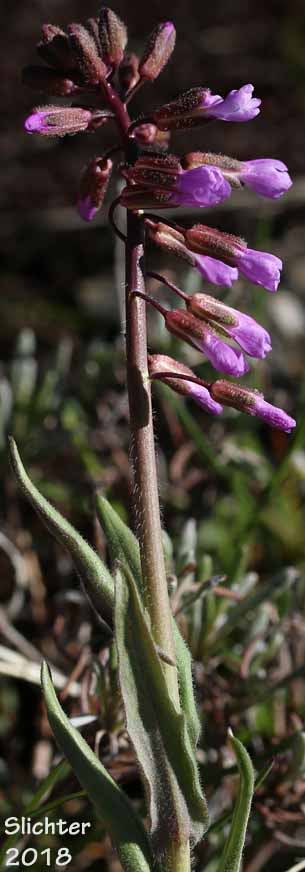
Sicklepod rockcress blooming on scablands at the Bickleton Ridge Unit of the Klickitat Wildlife Area.......April 20, 2018.
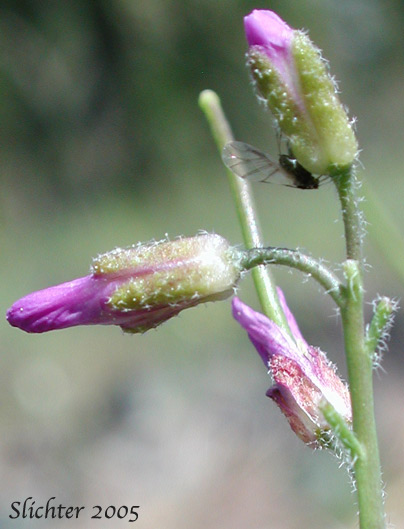 The photo
at right shows a close-up of the flowers and pedicels of Arabis sparsiflora var. subvillosa as seen on the east side of Mt. Adams.
Note the numerous branched hairs found on the outer surface of the sepals and pedicels.
The photo
at right shows a close-up of the flowers and pedicels of Arabis sparsiflora var. subvillosa as seen on the east side of Mt. Adams.
Note the numerous branched hairs found on the outer surface of the sepals and pedicels.
Characteristics:
Sicklepod rockcress is a biennial or short-lived perennial with
one to several upright, simple to branched stems arising 40-80 cm from a mass
of basal leaves. Plants are densely hairy below with simple to branched, star-shaped
hairs. The numerous basal leaves are oblanceolate in shape, 2 to 9 cm in length
and 2 to 8 mm wide. The margins are entire to several-toothed and the blades
are finely to coarsely haired. The basal leaves narrow to a slender petiole.
There are also numerous stem leaves, reduced in size up the stem. The lower
leaves are petiolate, but the upper ones become somewhat clasping or auriculate
and somewhat glabrous in texture. The stem leaves are linear-lanceolate to oblanceolate
in shape, with mostly entire margins.
The inflorescence is a long, loose raceme of many flowers. The
4 petals may be white to deep purple and measure 6-14 mm in length. The pedicels
are glabrous to sparsely covered with branched, radiate hairs. The sepals are
often purplish, covered with branched, radiate hairs, and measure 4-6 mm long.
The seed capsules are siliques, long and thin, somewhat flattened, usually arched
in outline, and either ascending to spreading-drooping. The capsules are glabrous
and measure from 6-10 cm long and 1.75-2.5 mm wide.
Variety subvillosa typically has longer and coarser and
perhaps harsher hairs on the stems. The basal and lower leaves are commonly
coarsely few-toothed. The pedicels are more strongly haired, the hairs longer
and often stiffer.
Former Pacific Northwest Varieties:
var. atrorubens: Petals
a deep purple color. Siliques ascend. Basal leaves toothed. Pedicels of the
flowers and siliques typically not haired. Found east of the Washington Cascades
from Chelan County to Klickitat County in the south.
var. sparsiflora: Petals white, pink, or light
purplish, but lighter than variety atrorubens. Basal leaves entire margined.
Pedicels of the flowers and siliques usually ascending, smooth, and hairless.
Found in the eastern part of the species' range from Idaho to Utah, west to
southeast Oregon, and south to northeastern California.
var. subvillosa: Petals
white, pink, or light purplish, but lighter than variety atrorubens.
Siliques usually spreading to descending. Basal leaves toothed. Pedicels of
the flowers and siliques usually noticeably lightly haired and spreading. Found
from central Washington south to California along the east base of the Cascade
Range, and east to Montana and Wyoming.
Habitat:
Sicklepod rockcress is found in arid, sagebrush and ponderosa
pine habitats.
Range:
Sicklepod rockcress is found from British Columbia south along
the eastern edge of the Cascade Range to California, and eastward to Alberta,
and south through Montana, Wyoming and into Utah.

The photo above shows the maturing pods of sicklepod rockcress which are slightly ascending to spreading and somewhat straight to arched downward at the tip.
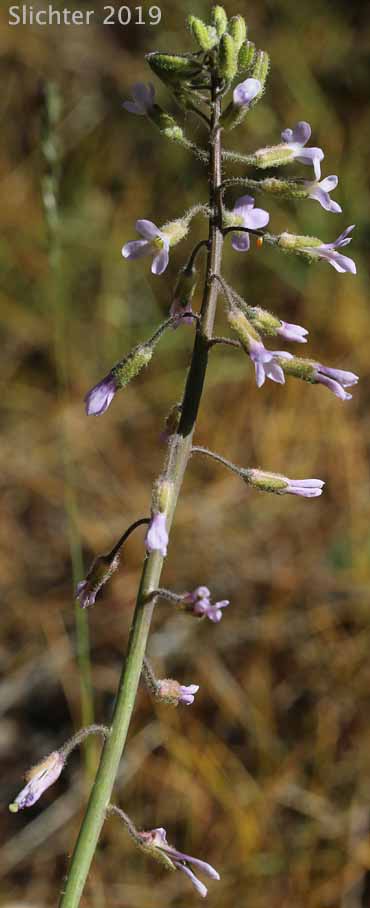 -
- 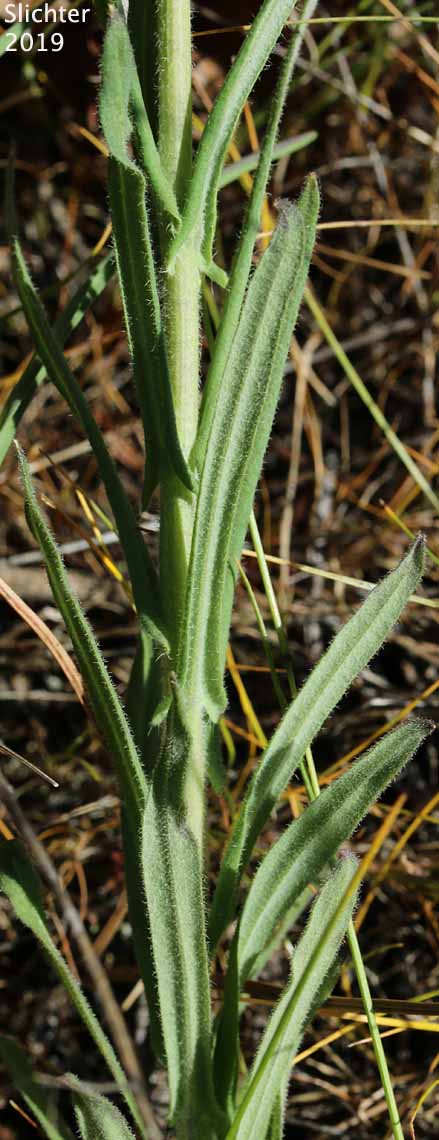
What appears to be sicklepod rockcress observed in open ponderosa pine forest on prehistoric Missoula Flood sandbars near the old Spokane Country Club, Spokane County, WA......May 7, 2019.
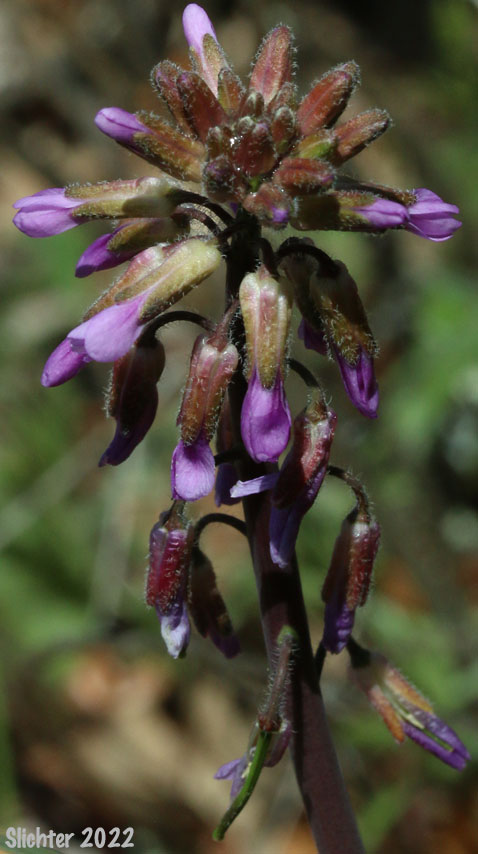 -
- 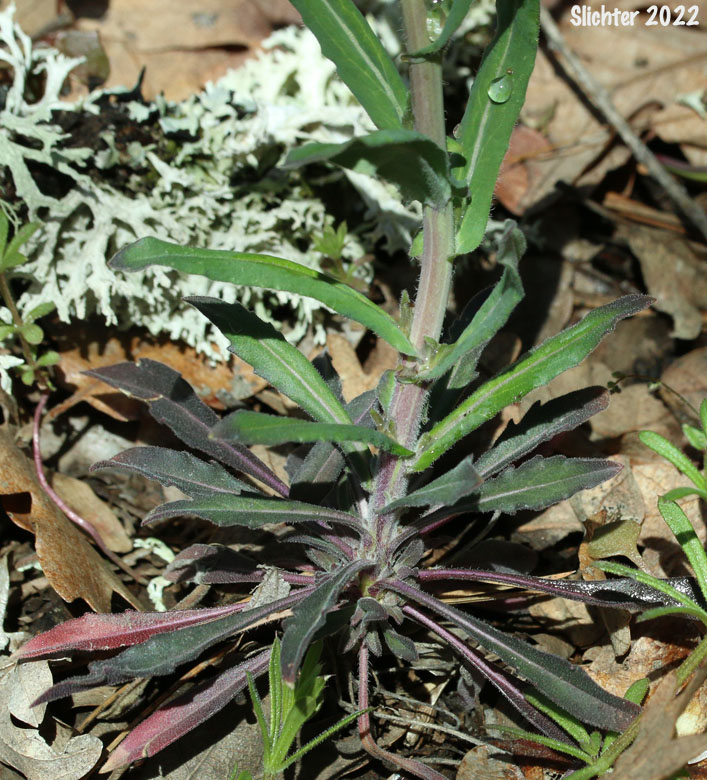 -
- 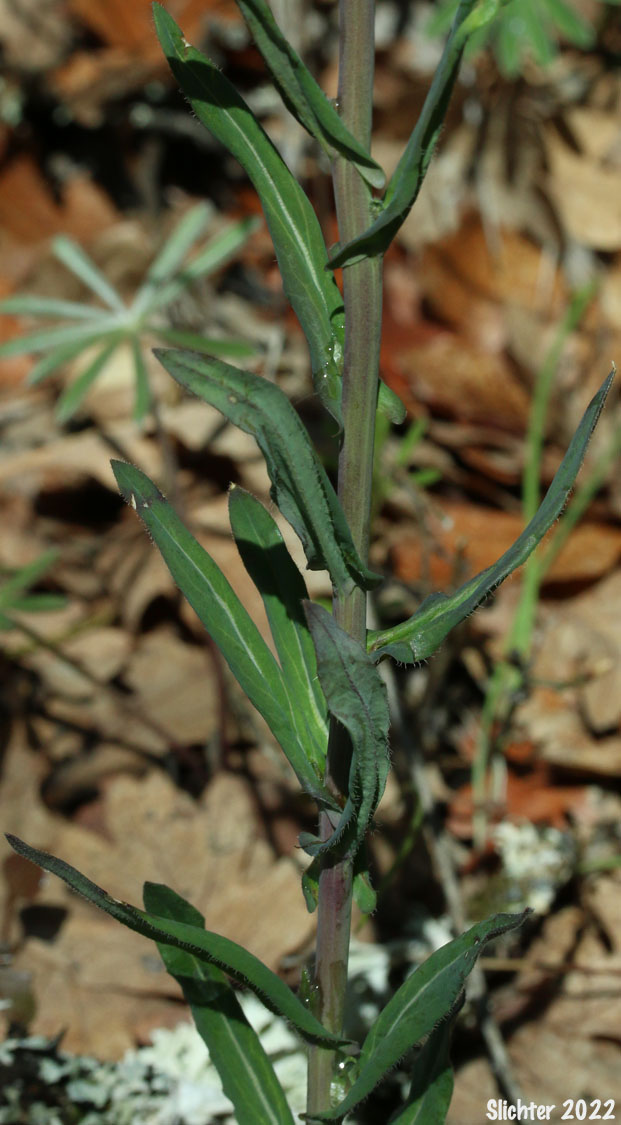
Sicklepod rockcress observed on BLM lands along Box Canyon Road about one mile east of the gated trailhead, north-central Klickitat County, WA......May 1, 2022.
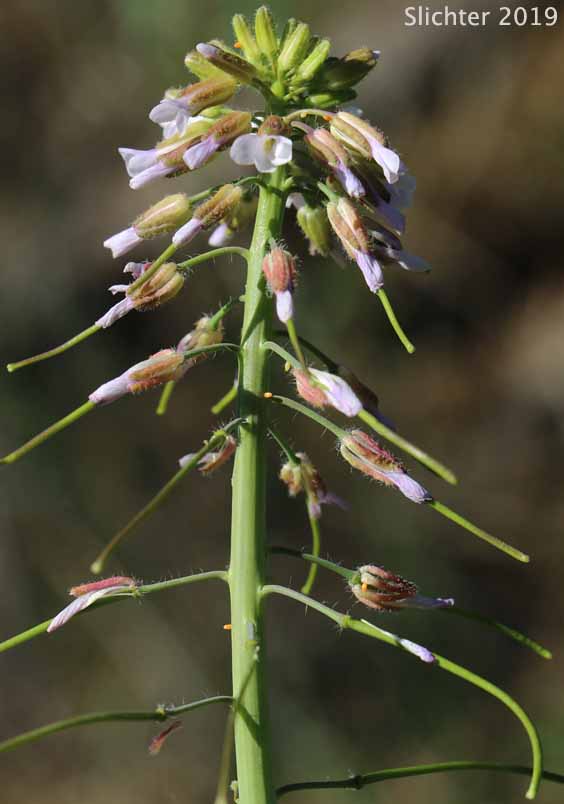 -
- 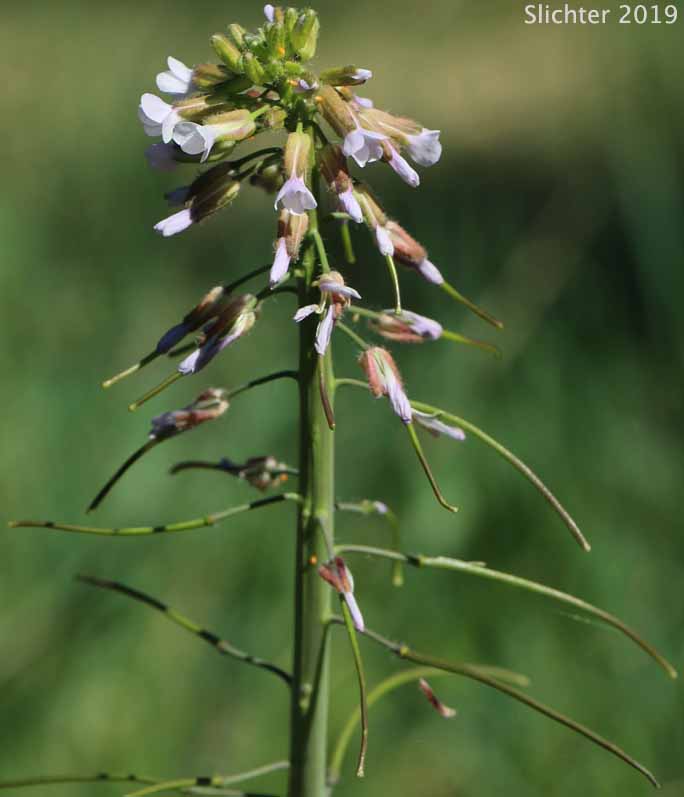
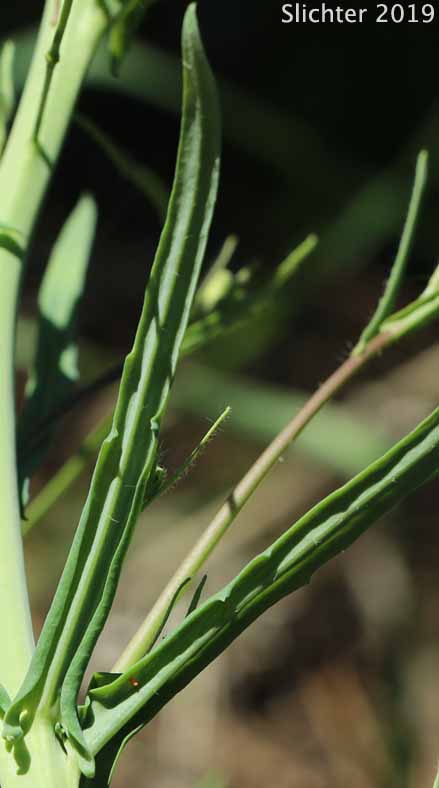 -
- 
Sicklepod rockcress blooming along the Headquarters Trail, Turnbull National Wildlife Refuge.....May 8, 2019.
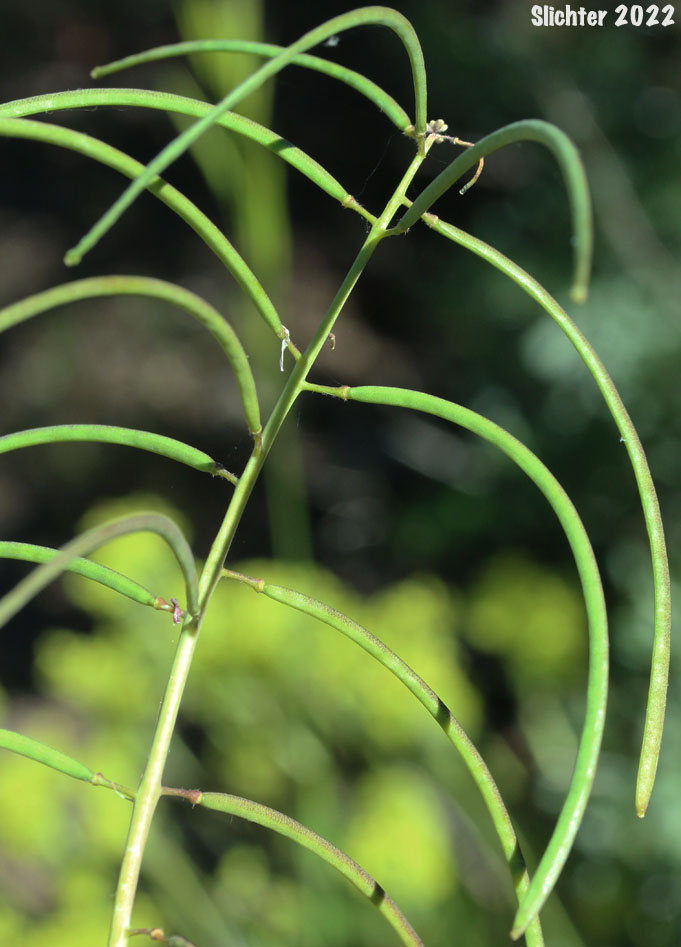 -
- 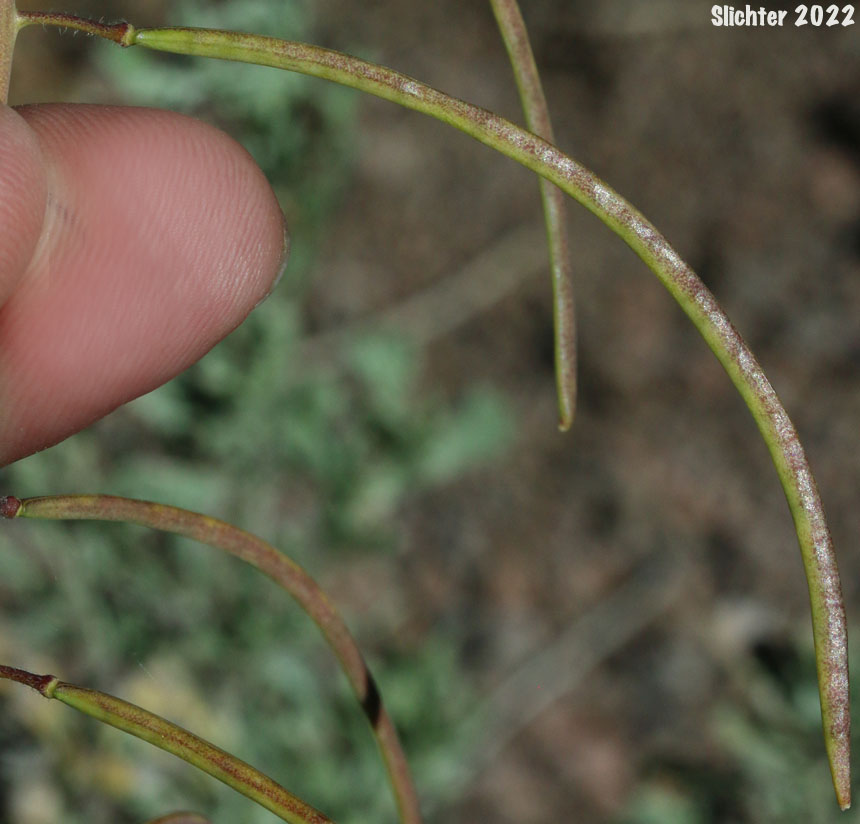

Sicklepod rockcress observed
observed along
the Fremont National Recreation Trail #160 on the west side of Twelvemile Peak, Fremont-Winema National Forest......July 16, 2022.
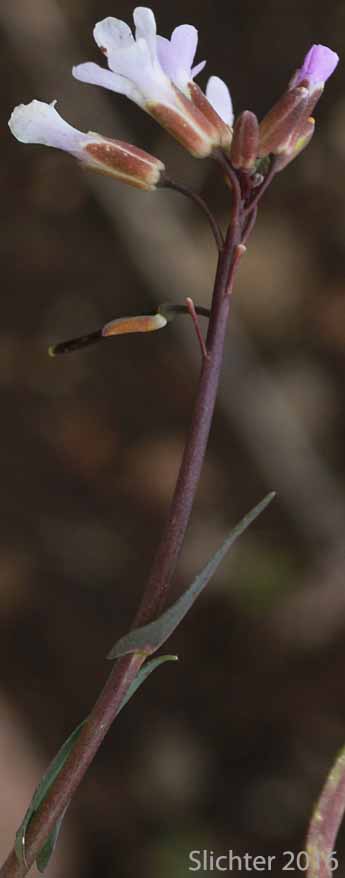 -
- 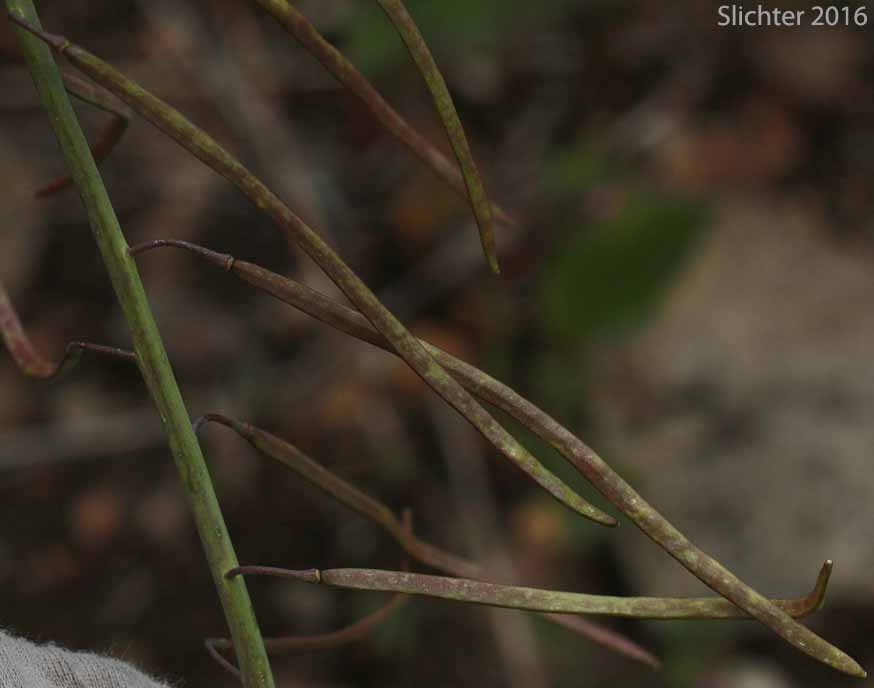 -
- 
Inflorescence, siliques (fruits) and upper stem leaves of small-flowered rockcress as seen along the Wapaloosie Mountain Trail #15 in the Kettle Range, Colville National Forest..........June 23, 2016.
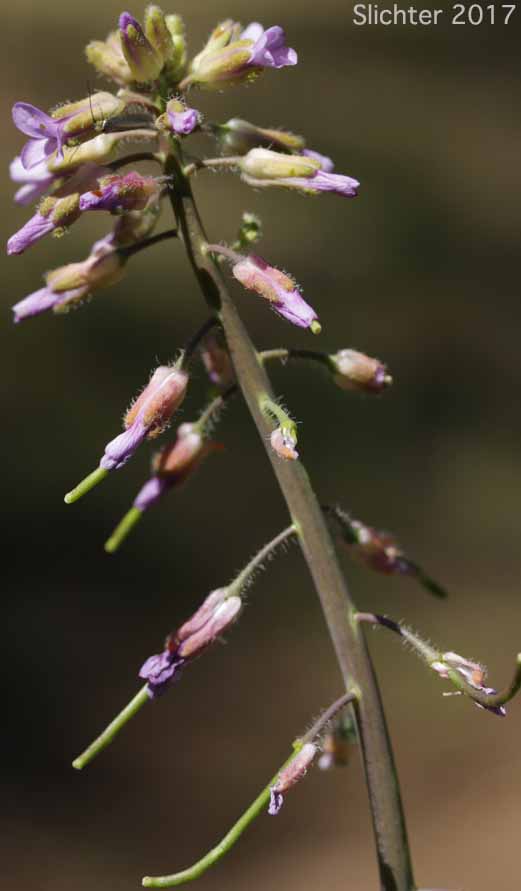 -
- 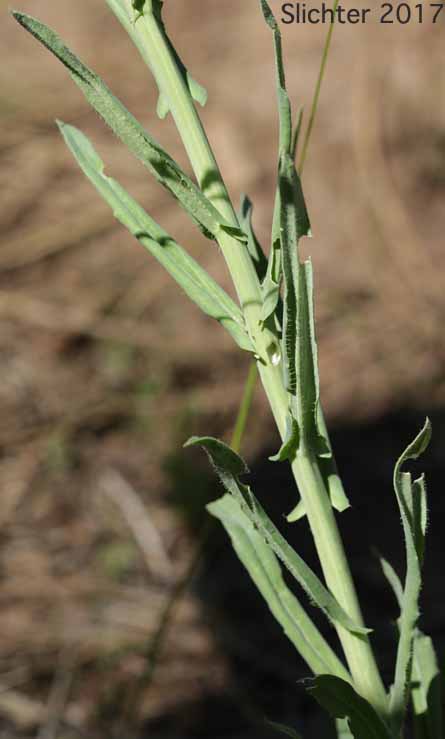
Small-flowered rockcress as seen on balds atop Bickleton Ridge in the Bickleton Ridge Unit of the Klickitat Wildlife Area.........May 28, 2017.
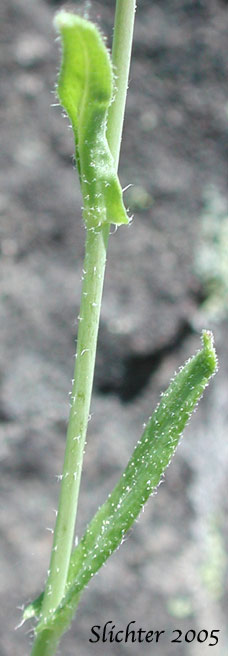 -
- 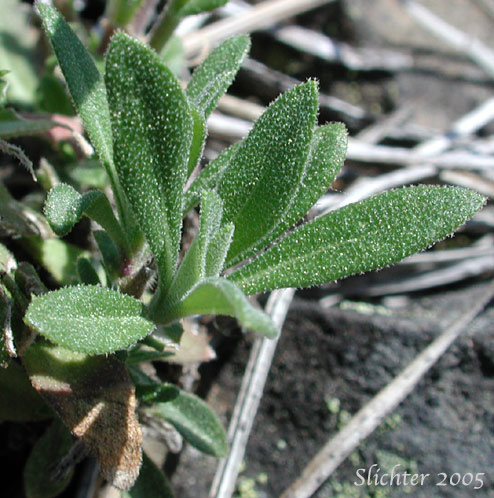
Basal and stem leaves of sicklepod rockcress. Note the base of the stem leaves, which clasp the stem.
 -
- 
The photo at left shows a single-stemmed sicklepod rockcress as seen at a rock quarry on road K5000 on the east side of Mt. Adams...........May 29, 2006. Note the numerous, sessile and clasping leaves which are only slightly reduced in size upwards on the stem. The photo at right shows a close-up of the inflorescence of sicklepod rockcress with maturing fruits as seen along the Steins Pillar Trail #837, Ochoco National Forest.........June 26, 2017.
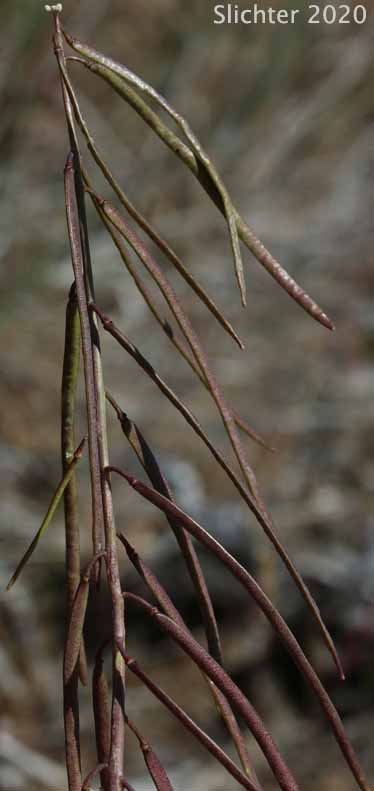 -
- 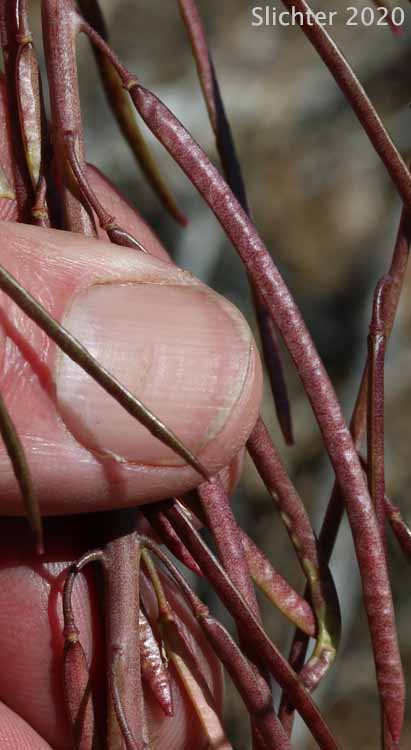
Maturing fruits of sicklepod rockcress as observed on scablands and in open oak forest between upper Rock and Box Canyon Creeks, East Simcoe Mountains Unit of the Klickitat Wildlife Area.....May 23, 2020.
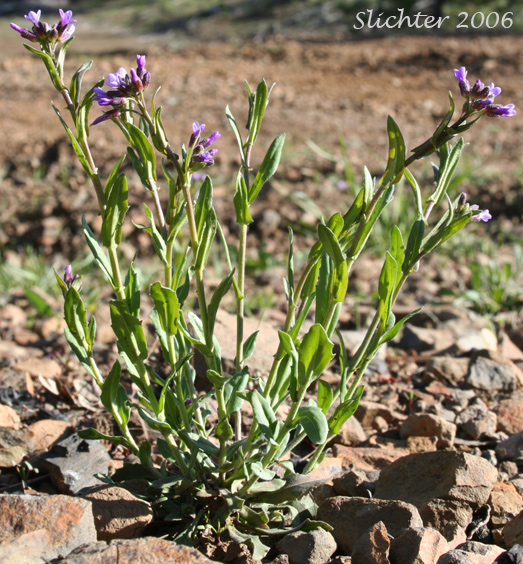
The photo above shows the general form of sicklepod rockress as seen at a rock quarry along road K5000 on the eastern slopes of Mt. Adams............May 29, 2006. Many plants tend to exist as solitary stems rather than multiple stems from the base.
Paul Slichter